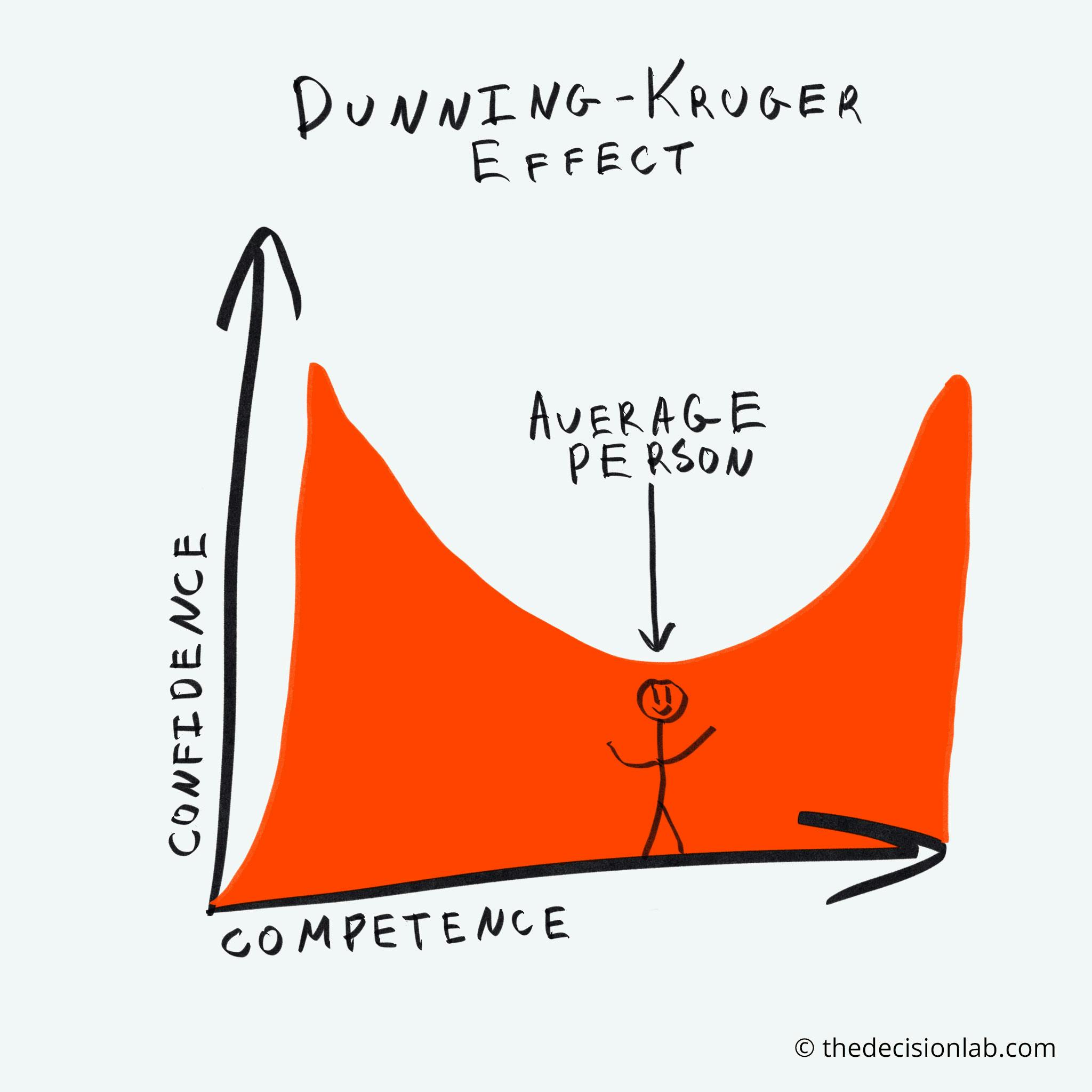Why do we fail to accurately gauge our own abilities?
Dunning–Kruger Effect
, explained.What is the Dunning-Kruger Effect?
The Dunning-Kruger effect occurs when a person’s lack of knowledge and skill in a certain area causes them to overestimate their own competence. By contrast, this effect also drives those who excel in a given area to think the task is simple for everyone, leading them to underestimate their abilities. In the years following the first description of this phenomenon, controversy has surrounded the Dunning-Kruger effect and its validity. While it was once considered a well-founded explanation of how we evaluate our abilities, the effect has since been questioned by certain data scientists and mathematicians alike.

Where this bias occurs
Imagine you and your friend decide to try something new: separately, you both start learning Spanish. Within a few days, you can say 10–15 sentences. You’re a bit disappointed, and believe you should be able to say more by now. The language comes naturally to you, and having a good grip on it yourself causes you to think it is simple for everyone.
Your friend, on the other hand, has learned just a few words. He is amazed by his progress. He doesn’t yet have the knowledge and skills to know that he’s pronouncing those words incorrectly and forming grammatically incorrect sentences. He’s learned much less than you, but his minimal knowledge prevents him from understanding his mistakes. Moreover, his lack of comparison causes him to overestimate his relative ability. His ignorance of how far others have come (like you, for example) keeps him thinking he’s excelling when he’s actually learning at below-average speed.


















